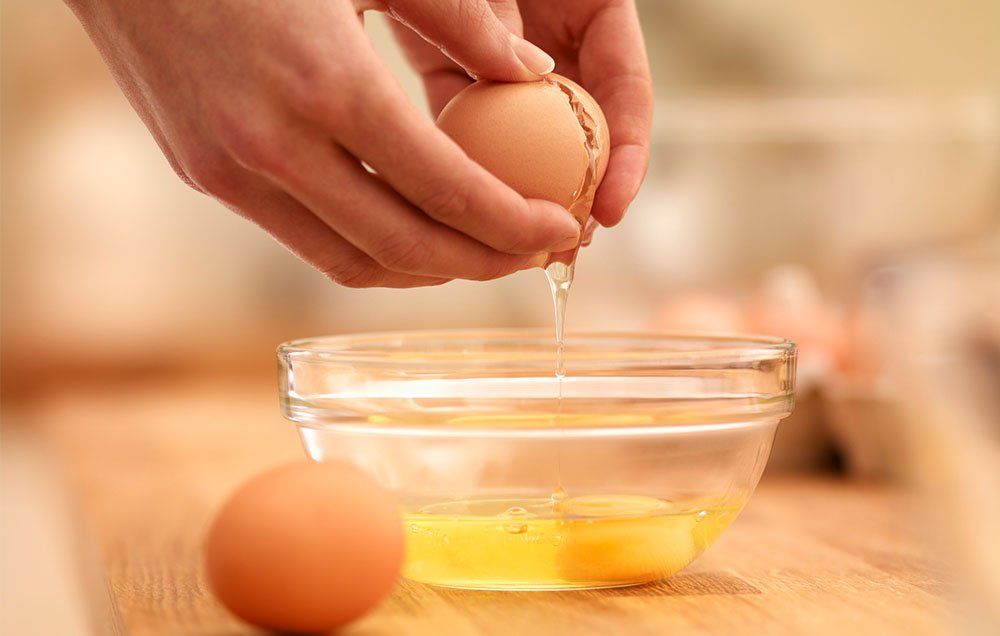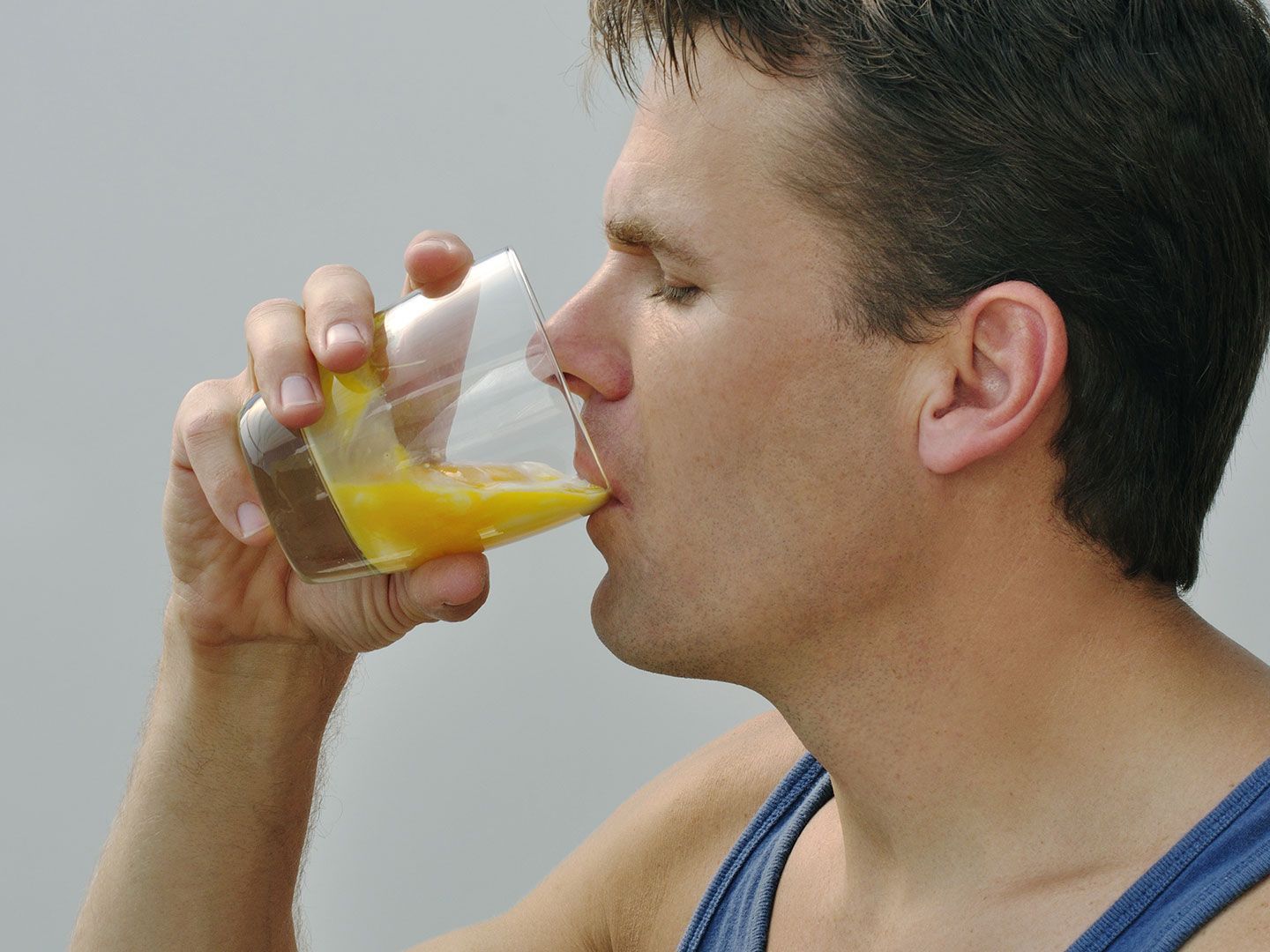Testosterone plays a vital role in muscle growth, energy levels, and overall well-being, making it a key hormone for both men and women. Many people believe that consuming raw eggs can naturally boost testosterone due to their rich nutrient profile, including cholesterol, protein, and essential vitamins. But is there scientific evidence to support this claim, or is it just a long-standing myth?
Recommended: Best Foods to Increase Sperm Count and Motility
In this article, we’ll explore the potential link between raw eggs and testosterone production, the risks and benefits of consuming them, and alternative ways to naturally enhance testosterone levels.
Nutritional Profile of Raw Eggs
Raw eggs are rich in essential nutrients that support overall health and hormone production. They provide high-quality protein, healthy fats, vitamins, and minerals that play a role in various bodily functions, including testosterone synthesis. Each egg contains approximately six grams of protein, which aids in muscle growth and recovery, along with about five grams of fat, including cholesterol—a crucial component in the production of steroid hormones like testosterone.

Cholesterol is particularly significant as it serves as a building block for testosterone synthesis. Beyond macronutrients, raw eggs are packed with essential vitamins such as vitamin D, B2, B5, and B12, which contribute to metabolism, brain function, and hormonal balance. They also contain key minerals like zinc, selenium, and phosphorus, which support reproductive health, immune function, and energy production.
While raw eggs offer these benefits, they also pose potential risks, particularly the chance of bacterial contamination. This should be carefully considered when incorporating raw eggs into a diet aimed at naturally enhancing testosterone levels.
Recommended: Best Herbs For Male Fertility
How Testosterone is Produced in the Body
Testosterone is primarily produced in the testes in men and the ovaries in women, with small amounts also synthesized by the adrenal glands. The process begins in the brain, where the hypothalamus releases gonadotropin-releasing hormone (GnRH). This hormone signals the pituitary gland to produce luteinizing hormone (LH), which then travels through the bloodstream to the testes or ovaries.
In men, LH stimulates the Leydig cells in the testes to convert cholesterol into testosterone. Since cholesterol is a key building block of testosterone, dietary intake and overall health can influence its production. Once synthesized, testosterone enters the bloodstream and binds to proteins like sex hormone-binding globulin (SHBG) or albumin, allowing it to be transported to various tissues.
Testosterone plays a crucial role in muscle growth, bone density, red blood cell production, and sexual health. It also influences mood, energy levels, and cognitive function. In women, although testosterone is present in smaller amounts, it is essential for maintaining muscle mass, bone strength, and libido. The body tightly regulates testosterone levels through feedback mechanisms to maintain hormonal balance.
Lifestyle Factors That Affect Testosterone Levels
Testosterone levels are influenced by various lifestyle factors that can either support or hinder hormone production. Maintaining a healthy lifestyle is essential for optimal testosterone levels, as factors like diet, exercise, sleep, and stress management all play a crucial role.
- Diet and Nutrition: A balanced diet rich in protein, healthy fats, vitamins, and minerals—especially zinc and vitamin D—supports testosterone production. Processed foods and excessive sugar intake can negatively impact hormone balance.
- Exercise and Physical Activity: Strength training and high-intensity interval training (HIIT) are known to boost testosterone levels. On the other hand, excessive endurance training without adequate recovery may lower testosterone.
- Sleep Quality: Poor sleep or inadequate rest can significantly decrease testosterone levels. Deep, uninterrupted sleep, particularly in the REM stage, is essential for optimal hormone regulation.
- Stress and Cortisol Levels: Chronic stress increases cortisol, a hormone that negatively affects testosterone production. Managing stress through relaxation techniques, meditation, or hobbies can help maintain balanced hormone levels.
- Body Composition and Weight Management: Excess body fat, particularly around the abdomen, is linked to lower testosterone levels. Maintaining a healthy weight through regular exercise and proper nutrition is important for hormonal health.
Recommended: How to Increase Sperm Volume Overnight
- Alcohol and Drug Use: Excessive alcohol consumption and certain drugs can disrupt hormone production, leading to lower testosterone levels. Moderation is key to preventing negative effects.
By adopting a healthy lifestyle that includes proper nutrition, regular exercise, sufficient sleep, and stress management, individuals can naturally support and maintain optimal testosterone levels.
Do Raw Eggs Really Boost Testosterone?
The idea that raw eggs boost testosterone stems from their rich nutrient profile, particularly their cholesterol and protein content, which are essential for hormone production and muscle growth. Cholesterol serves as a precursor for testosterone synthesis, while protein helps with muscle recovery and overall health. Additionally, raw eggs contain important vitamins and minerals, such as vitamin D, B vitamins, and zinc, which contribute to hormone regulation and reproductive function.

However, while these nutrients support testosterone production, eating raw eggs alone is unlikely to cause a significant boost in testosterone levels. Factors like overall diet, exercise, sleep, and stress management play a much larger role in hormone balance. Moreover, consuming raw eggs carries risks, including bacterial contamination from Salmonella, which can lead to foodborne illness. Cooking eggs eliminates this risk while preserving most of their nutritional benefits.
Ultimately, while raw eggs provide key nutrients involved in testosterone production, they are not a magic solution for increasing levels. A well-balanced diet, combined with a healthy lifestyle, is more effective in naturally supporting testosterone.
Recommended: Does Sea Moss Help With Erectile Dysfunction
Raw Eggs vs. Cooked Eggs: Which is Better for Testosterone
When comparing raw eggs to cooked eggs for testosterone support, both provide essential nutrients, but their bioavailability and safety differ. Raw eggs contain high-quality protein, healthy fats, and cholesterol, which are crucial for hormone production, including testosterone. However, consuming them raw reduces the body’s ability to absorb certain nutrients, such as biotin, due to the presence of avidin, a protein that interferes with its absorption. Cooking eggs deactivates avidin, allowing for better nutrient utilization.
Additionally, raw eggs pose a risk of bacterial contamination, particularly from Salmonella, which can cause foodborne illness. Cooking eggs eliminates this risk while preserving their key nutrients. Although raw eggs may still support testosterone production, cooked eggs offer the same benefits with improved digestion and nutrient absorption, making them the better choice for overall health and hormone balance.
Potential Risks of Consuming Raw Eggs
Consuming raw eggs has been associated with various health benefits, including muscle growth and hormone production, but it also comes with potential risks. While they provide essential nutrients that support testosterone synthesis, their raw form may pose certain health concerns. Here are some potential risks of consuming raw eggs:
- Bacterial Contamination: Raw eggs may carry Salmonella, which can cause food poisoning with symptoms like nausea, vomiting, diarrhea, and fever.
- Biotin Deficiency Risk: Raw eggs contain avidin, a protein that prevents the absorption of biotin (vitamin B7), potentially leading to deficiencies that affect energy metabolism, skin health, and hair growth.
Recommended: Best Chinese Herbs For Erectile Dysfunction
- Digestive Issues: The proteins in raw eggs are harder to digest than those in cooked eggs, which may cause discomfort for some individuals.
- Reduced Nutrient Absorption: Cooking eggs enhances the bioavailability of certain nutrients, making them easier for the body to absorb compared to raw eggs.
- Health Risks for Vulnerable Groups: Individuals with weakened immune systems, pregnant women, and young children are more susceptible to foodborne illnesses from raw eggs.
Safe Ways to Incorporate Eggs into Your Diet
Including eggs in your diet can provide essential nutrients that support overall health, including testosterone production. However, it’s important to consume them safely to avoid potential risks like bacterial contamination. Here are some effective and safe ways to incorporate eggs into your diet:
- Cooked Eggs: Cooking eggs thoroughly eliminates the risk of Salmonella. Options like boiled, scrambled, poached, or fried eggs provide the same nutritional benefits without the risks of raw consumption.

- Pasteurized Eggs: If you prefer raw eggs in smoothies or homemade sauces, using pasteurized eggs reduces the risk of foodborne illness while maintaining nutritional value.
- Egg-Based Dishes: Incorporate eggs into meals such as omelets, frittatas, or breakfast burritos with vegetables and lean proteins for a balanced, nutrient-rich diet.
Recommended: Best Chinese Herbs For Erectile Dysfunction
- Hard-Boiled Snacks: Hard-boiled eggs are a convenient, high-protein snack that supports muscle growth and hormone production.
- Egg Whites for Protein: If cholesterol intake is a concern, egg whites provide high-quality protein without the added fats while still contributing to muscle recovery.
- Healthy Pairings: Combine eggs with nutrient-dense foods like whole grains, avocados, and leafy greens to enhance their health benefits and support overall well-being.
By choosing safe preparation methods and pairing eggs with nutritious ingredients, you can enjoy their benefits while minimizing health risks.
Conclusion
Eggs are a nutrient-dense food that can support overall health and hormone production, including testosterone. They provide essential proteins, healthy fats, vitamins, and minerals that contribute to muscle growth, energy levels, and hormonal balance. However, while raw eggs contain valuable nutrients, consuming them uncooked poses risks of bacterial contamination, making cooked or pasteurized eggs a safer option.
Testosterone levels are influenced by multiple lifestyle factors, including diet, exercise, sleep, and stress management. While eggs can be a beneficial part of a testosterone-boosting diet, they should be consumed alongside a well-balanced diet and a healthy lifestyle. Ultimately, incorporating eggs safely and strategically can help maximize their benefits while minimizing potential risks.
